热身 Warm-up
1 给下面的词语选择对应的图片
Match the pictures with the words.
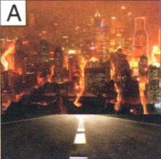
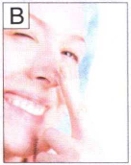
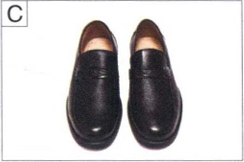
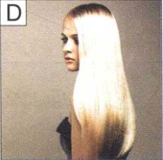
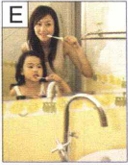
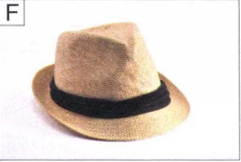
| píxié 皮鞋 |
chéngshì 城市 |
màozi 帽子 |
| bízi 鼻子 |
shuā yá 刷牙 |
tóufa 头发 |
2 说说下列情况下,你想做什么或不想做什么
Talk about what you would or would not like to do under the following circumstances.
| 情况 | 想法 |
|---|---|
| 累的时候 lèi de shíhou | 不想说话 bù xiǎng shuō huà |
| 高兴的时候 gāoxìng de shíhou | |
| 忙的时候 máng de shíhou | |
| 冷的时候 lěng de shíhou | |
| 牙疼的时候 yá téng de shíhou | |
| 热的时候 rè de shíhou |
课文 Texts
1 在公司 In the company 16-1
小丽:我不喜欢一直住在同一个城市,想去其他城市看一看。
周明:我年轻的时候也这么想,但是那时候没有钱,如果有钱,就去了。
小丽:那您现在为什么不去?
周明:现在钱不是问题了,主要是没有时间。
小丽:我认为现在您有时间也不会出去玩儿。
周明:你说得对,我现在累得下了班就想睡觉。
生词 New Words
1. 城市 chéngshì n. city
2. 如果 rúguǒ conj. if, in case
3. 认为 rènwéi v. to think, to believe
2 在同事家 At a colleague’s home 16-2
同事:谢谢你们来看我女儿。你送的小皮鞋和小帽子真漂亮!
小丽:别客气,你女儿长得白白的、胖胖的,真可爱!现在多高了?
同事:快1米了,25公斤。
小丽:你看她鼻子小小的,头发黑黑的;长得像谁?
同事:像她爸爸,刚出生时她爸爸高兴得一个晚上都没睡着。
生词 New Words
4. 皮鞋 píxié n. leather shoes
5. 帽子 màozi n. hat, cap
6. 长 zhǎng v. to grow, to develop
7. 可爱 kě’ài adj. lovely, adorable
8. 米 mǐ n. metre
9. 公斤 gōngjīn n. kilogramme
10. 鼻子 bízi n. nose
11. 头发 tóufa n. hair
3 在公司 In the company 16-3
小刚:我的牙还是很疼。
同事:如果不舒服,就去医院检查一下吧。
小刚:检查好几次了,但是没什么用。
同事:大夫怎么说的?
小刚:每次医生都告诉我,回家好好儿刷牙。
生词 New Words
12. 检查 jiǎnchá v. to check, to examine
13. 刷牙 shuā yá v. to brush the teeth
4 很多人都觉得现在人和人的关系冷冷的,这可能是因为工作太忙,忙得没时间跟别人见面,累得不愿意和别人多说话。其实,我们应该多对别人笑笑,说话时如果能多用一些 “您好”“谢谢” 这样的词语,和别人的关系就会变得更好。
生词 New Words
14. 关系 guānxì n. relationship
15. 别人 biérén n. other people
16. 词语 cíyǔ n. word, expression
拼音课文 Texts in Pinyin
1、Zài gōngsī
Xiǎolì: Wǒ bù xǐhuān yìzhí zhù zài tóng yí ge chéngshì, xiǎng qù qítā chéngshì kàn yi kàn.
Zhōu Míng: Wǒ niánqīng de shíhou yě zhème xiǎng, dànshì nà shíhou méiyǒu qián, rúguǒ yǒu qián, jiù qù le.
Xiǎolì: Nà xiànzài wèi shénme bú qù?
Zhōu Míng: Xiànzài qián bù shì wèntí le, zhǔyào shì méiyǒu shíjiān.
Xiǎolì: Wǒ rènwéi xiànzài nín yǒu shíjiān yě bù huì chūqù wánr.
Zhōu Míng: Nǐ shuō de duì, wǒ xiànzài lèi de xià le bān jiù xiǎng shuì jiào.
2、Zài tóngshì jiā
tóngshì: Xièxiè nǐmen lái kàn wǒ nǚ’ér. Nǐ sòng de xiǎo píxié hé xiǎo màozi zhēn piàoliang!
Xiǎolì: Bié kèqi, nǐ nǚ’ér zhǎng de báibái de, pàngpàng de, zhēn kě’ài! Xiànzài duō gāo le?
tóngshì: Kuài yì mǐ le, èrshíwǔ gōngjīn.
Xiǎolì: Nǐ kàn tā bízi xiǎoxiǎo de, tóufa hēihēi de, zhǎng de xiàng shéi?
tóngshì: Xiàng tā baba, gāng chūshēng shí tā baba gāoxìng de yí ge wǎnshang dōu méi shuì zháo.
3、Zài gōngsī
Xiǎogāng: Wǒ de yá háishì hěn téng.
tóngshì: Rúguǒ bú shūfu, jiù qù yīyuàn jiǎnchá yíxià ba.
Xiǎogāng: Jiǎnchá le hǎo jǐ cì le, dànshì méi shénme yòng.
tóngshì: Dàifu zěnme shuō de?
Xiǎogāng: Méi cì yīshēng dōu gàosu wǒ, huí jiā hǎohǎor shuā yá.
4、Hěn duō rén dōu juéde xiànzài rén hé rén de guānxì lěnglěng de, zhè kěnéng shì yīnwèi gōngzuò tài máng, máng de méi shíjiān gēn biérén jiàn miàn, lèi de bù yuànyì hé biérén duō shuō huà. Qíshí, wǒmen yīnggāi duō duì biérén xiàoxiao, shuō huà shí rúguǒ néng duō yòng yìxiē “nǐn hǎo” “xièxie” zhèyàng de cíyǔ, hé biérén de guānxì jiù huì biàn de gèng hǎo.
注释 Notes
1 如果……(的话),(S)就……
The Structure “如果……(的话),(S)就……”
“如果” 后边的分句是一个假设,“就” 后边的分句是在这种假设情况下产生的结果。注意,第二个分句的主语要放在 “就” 的前边。例如:
The clause following “如果” is a hypothesis, and the clause after “就” is the result based on the hypothesis. Note that the subject of the second clause should be put right before “就”. For example:
(1)如果你太累了,就休息一会儿。
(2)如果你喜欢,我就给你买。
(3)如果有钱的话,我就去旅游。
(4)如果不舒服,就去医院检查一下吧。
● 练一练 Practise
完成句子 Complete the sentences.
(1)如果明天下雨的话,____________________。
(2)如果考试考得很好的话,____________________。
(3)____________________,我就跟朋友去踢足球。
2 复杂的状态补语 Complex Complements of State
汉语中,可以用 “得” 构成状态补语,描写某种状态。“得” 前一般是形容词或动词,“得” 后一般是动词词组。例如:
In Chinese, “得” can be used to form a complement to describe a certain state. Usually “得” is preceded by an adjective or a verb and followed by a verb phrase. For example:
(1)孩子们玩儿得不想回家。
(2)弟弟高兴得跳了起来。
(3)儿子累得下了班就睡觉了。
(4)人们忙得没时间跟别人见面。
● 练一练 Practise
完成句子 Complete the sentences.
(1)我牙疼得____________________。
(2)今天天气热得____________________。
(3)看了这个电影,她笑得____________________。
3 单音节形容词重叠 Reduplication of Monosyllabic Adjectives
汉语中,单音节形容词重叠表示程度深,形式为 “AA的”,常用来描述人或事物的特征。例如:
In Chinese, a monosyllabic adjective is often reduplicated in the form of “AA的” to describe the characteristics of a person or thing, indicating a deep degree. For example:
(1)你送的花红红的,我很喜欢。
(2)这些草绿绿的,真漂亮。
(3)他鼻子小小的,长得像谁?
(4)你女儿长得白白的、胖胖的,真可爱!
● 练一练 Practise
完成句子 Complete the sentences.
(1)她的男朋友个子__________。
(2)他的女朋友头发__________。
(3)这个蛋糕__________,真好吃。

Comments